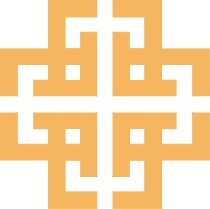Short Bio
I am analytical and global-minded digital workplace, collaboration and knowledge management leader who develops and implements strategies for efficient digital work. I help international professional services organizations become more resilient and prepared for the future through continuous learning, improvement and innovation.
Long Bio
I have 8+ years in knowledge management (KM) and I’m known for driving a balanced KM strategy that builds up each of the three pillars: technology, people, and processes.
For the last three and a half years, I have been working as a KM manager in the IT area of KPMG US. I was instrumental in transitioning knowledge management operations to Mexico, where I lead a team of five people. In this role, I help technical teams to capture and share critical knowledge that is essential for solving problems and making timely decisions. My team oversees over 1000 operations manuals and about 3000 knowledge articles.
Before my KPMG role, I was in professional training and consulting on business process optimization. Between 2014 and 2018 I conducted my Ph.D. research on knowledge management practices in non-profit networks. I’m proud of addressing a topic that supports Sustainable Development Goals (SDGs) of zero hunger and reduced food waste.
Earlier in my career, I held a variety of roles in finance, business development, communications, and market research in Russia, Germany, the United Arab Emirates, and China.
With 19 years of international experience, my sweet spot is in working across continents and cultures. I am always open to new international assignments and projects.
Focus of My Work
Bottom Up Approach to Knowledge Management: Importance of Personal Knowledge Management in Creation of Knowledge Culture
The ‘bottom up’ approach to Knowledge Management (KM) as opposed to more common ‘top down’ enterprise-wide KM implementation.
I discuss the following points:
The role of individuals in the creation of knowledge culture as organizational culture is shaped by behavior of every single person.
Making professionals aware of the importance of their knowledge and expertise. Knowledge as a personal asset.
Personal benefits of capturing and sharing knowledge, while facilitating the collaboration inside and across the teams.
How to organize personal information and knowledge using specific tools, e.g. Microsoft Suite.
Building Knowledge Management Structure around Critical Knowledge
Critical knowledge allows your organization to perform core functions, be profitable and competitive.
Less is more. You do not need to manage all information and knowledge:
Identify and manage the critical knowledge. Lead this initiative from C level, have a Chief Knowledge Officer (CKO) or have a senior manager who reports to Head of HR or Chief of Staff (COS).
For the rest of organization provide modern IT tools to capture and share knowledge within and across the teams, while collaborating and contributing to the core functions of organization.
Knowledge Sharing Across Global Organizations
Crucial Importance of Change Management in Modern Organizations
Today organizations have to be agile and ready for continuous change and evolution. They have to adapt and innovate, while being ready to fail and make mistakes. Technologies such as AI are disrupting the business environment and have to be become part of organizational DNA.

